|
|
||
|
Pro Tools
FILMFESTIVALS | 24/7 world wide coverageWelcome ! Enjoy the best of both worlds: Film & Festival News, exploring the best of the film festivals community. Launched in 1995, relentlessly connecting films to festivals, documenting and promoting festivals worldwide. Working on an upgrade soon. For collaboration, editorial contributions, or publicity, please send us an email here. User login |
RAW MATERIAL at RIFF 2011photo still from film RAW MATERIAL... Screening at the 8th annual Reykjavik International Film Festival (RIFF), 2011.
RAW MATERIAL (Greece, 2011) by director Christos Karakepelis. This documentary left me with chills, not only because of its raw subject about the declining Greek economy but the worsening of the situation of immigrants to Greece and the inhumane lives they lead. When we follow the lives of three Roma from Albania, two Indians, a Turk and a Greek who subsist on the collecting of refuse and recycling who live in shanty towns that resemble slums of the lowest developed countries, it is hard to imagine this is life for thousands in Western Europe. This is very much a reality we must all face, as the wellbeing of these people reflects everyone’s. Where in ancient history peasants roamed these lands domesticating animals and tilling the fields, today the poor now live off the raw material waste of discarded metals (washing machines, microwaves, computers, cell phones, factory machines- a hell of our raw material waste en masse). While many would like to turn a blind eye to the desperate situation of the poor in Europe (and in the rest of the world for that matter), can we ignore this any longer? Is this their problem or ours? If western society is like a pyramid, the bottom of which holds the top up, then that means contemporary Europe (and everywhere) is built over a pile of raw material refuse. This is not a problem of the poor. This is everyone’s problem and it’s time to wake up, pay attention and make a change. For me, RAW MATERIAL is not only an important poignant must see film but beautifully made and a living symbol of where we are headed and what we are doing to ourselves and our planet.
Read below what Christos said to my questions in regards to his film in an interview about Raw Material.
ME: How did you meet each of the different characters and when? And when was it that you decided you would make a documentary film about them?
CHRISTOS: During 2004 I had to cross every day that area where they have their settlement. I was watching them leaving on the morning or having a break at noon, eating in public squares, stealing water from there. By this time I was facing unemployment and it was very difficult for me to ensure the necessary for my living. Even if in their eyes I seemed to be one of the "lucky", I was feeling relative to them. I decided to follow this feeling and give us the mutual opportunity to understand each other. Working with them was for me the opportunity to share my impasses with theirs and create a common power for both parts.
ME: How hard was this film to produce? In terms of budget and difficulty in dealing with all the different languages and locations challenges?
CHRISTOS: It took us three years to build a relation not only with all our characters, but with the whole Albanian-Roma community of the settlement, since in Roma culture everybody belongs in a whole and nobody acts independently from the others. At least five of our team (the responsible for the research, the assistant director, the director of photography, the sound engineer, and me) we were already very familiar to everybody years before the shootings. During all these years we were recording our conversations with our characters in purpose to go deeper and deeper to their thoughts, but also in purpose to share, to make them understand what are we looking for and make them participate. Our insistence and our devotion became for them a challenge to give their best and was the proof of our sincere interest. The problem of language was an obstacle of course. Except of the one Greek character, all others speak languages that we don't understand. During the sound recordings we had always a translator. Although all our characters can make it with the Greek language, we have chosen to ask them speak in their maternal languages. We felt that their poor Greek vocabulary would eliminate their sentiments and the deepness of their thoughts. Of course we were not asking from the translator to translate immediately everything that a person had just said. That would have destroyed the liveliness of our discussion. The translator was putting the questions and, then, was giving us a general idea about the answer. So, it was later, at the post production stadium when we translated properly everything and when we finally discovered the richness of their words. Except all these difficulties, equally difficult was the access at the junk-yards because everything that has to do with them is illegal. Those shootings were the most risky. We were very determined to do them and we accomplished it. We never took any official permission from the junkyards. They didn't want us around. On the other hand they were afraid of us. So we were in and out at the same time. Every day we walked a bit more and a bit more. The film was partially state funded, by the Greek Film Center and the national broadcaster ERT. However the production started by the initiative and financial contribution of Costas Labropoulos’, CL Productions. Respectively, the producer Christos V. Konstantakopoulos of Faliro House Productions joined the production and financed post-production which was pushed back due to lack of finance.
ME: The film had some of the best DOP work I have seen in a documentary. It was really impressive, considering the subject matter was so dark, the photography was so beautiful. Can you speak a little bit about this work?
CHRISTOS: We worked exclusively with natural light. I insisted we use film (super 16mm) because the camera is flexible enough and because film gives substance to the image. I started shootings during a very-very hot summer with the temperatures in Athens rising to 45 degrees. The atmosphere was suffocating and the video could not fight this flat light everywhere. For me it was very important to be able to understand the point of the Roma-settlement inside the whole city, the geographical relation between the settlement and Parthenon for example. Film was the most cheap and flexible way to have a decent result. As it concerns the beauty of the photography: it was my choice not to narrate this story through a trash image. These people live in trash, are considered as social trash and I felt they deserved to be seen as real humans, with a life as valuable as ours. Their houses maybe have not the standards of ours but are still the place were feelings, dreams, joy and pain circulate. I wanted that image would defend the dignity of the existence of my heroes.
ME: Can you tell us a bit about each of the characters represented in the film? I would like to know what happened to the old Turkish man? And the young boy with the pigeons?
CHRISTOS: The old Turkish man is still pushing his cart every day in the same area. In his family the situation worsens day by day. His sons are still unemployed, his grandsons have quitted school and the economical crisis in Greece has eliminated the metal objects that people used to throw in the garbage. He can't earn enough money to feed the whole family. People who live in the area told me he asked one day for some food. From our part we try to pass by and help as much as possible. Gogo is an adolescent by now. He has a small moustache and seems more shy than ever. Of course he is still doing the same job. The pigeons still remain his great love. He insists spending his money for them. Plubi is always furious with his fate in Greece. Vituperations and his clarinet are always the best ways for him to burst out. Spyros, after a cerebral episode can't work anymore. He repairs the three- wheeled motorbikes of others, reads a lot as every genuine communist has to do in purpose to be always ahead. The two Indians who worked in the iron foundry have disappeared after the foundry closed. Their boss doesn't have a clue about their existence. Probably they work somewhere hidden since they have no papers.
ME: When the boy bought pigeons he pulled out a big wad of cash and paid a lot for the pigeons. Why does he spend so much on the birds? It was a beautiful moment when he set them free on the rooftop.
CHRISTOS: He hasn't a logical answer about why he loves pigeons. When we asked him he answered: ‘I love them because I'm small’. The sum of money he spends from time to time corresponds roughly in the sum for his individual expenses during a month. Maybe he sees himself in these birds. As he says in the film they fly high but they always return back home by their own. Aren't they like him? He feels free to go round the city but he never thinks to betray or forget the place where he belongs.
ME: At the end you feature their house in the shanty town and they have a sony TV and DVD player. What did you want to say with all of those fragmented close-up shots? Was there a message in these final scenes where you juxtapose photos with models, a TV, etc., with the images of this poor child?
CHRISTOS: All these elements of luxury that besiege them, all this abundance of goods in the photos on the advertising linoleums they use to build their houses, show of course the insane contradiction between the way we treat products and the way we treat people. The abundance of goods so close to the insufficiency of humanism is the main characteristic of West culture. Only products seem to deserve and obtain our biggest attention. The faces of those models inside our heroes’ shacks are the violence with which the consumption society attacks our eyes and our minds. It's the disgusting beauty of traders.
ME: Can you explain something about the 'raw material' industry in Athens? How much is it worth? And is the recycling of it good for the environment or polluting it?
CHRISTOS: Every year 3.000.000 tons of iron is being produced in Greece through the recycling progress. The 80% of this production is feasible due to the hands of those desperandos. Although they don't officially exist for our state, this same state is totally incapable to collect metal from the garbage through some other organised procedure. If they don't search the bins for one day the 3 iron foundries of Greece would be obliged to stop production. Each half hour one foundry melts 100 tons of scrap to produce 85 tons of iron. The profit is huge. Recycling for me is not the solution to protect environment. The real solution is to stop consuming which such greed. The repetition of the same model of life recycles finally just us. The life of those desperandos is the proof that in our civilization you exist only when you can be a consumer. Those who can't be consumers are out of our world's focus. As long as we can afford paying a place under the sun we are used to consider recycling as the way to extinguish our sins, but what happens when you can't afford paying? We all know. We are all raw material.
ME: Did the people represented in the film see the film? And if so, what did they think?
CHRISTOS: Some of them have seen it on the occasion of the last check in translations. We wait good weather to organise an open projection on the Roma-settlement. Those who have seen it were deeply moved first of all not by the film itself, but by the fact that somebody worked so many years for them, respected their lives and kept his promises. I think that regardless the quality of the film, they would love it, because, for them, friendship is something they honour without terms.
ME: How has this film been received in Greece and abroad?
CHRISTOS: The film is not yet known in Greece or abroad. Except the two projections in the framework of Thessaloniki International Documentary Festival Raw Material has not yet travelled towards its viewers. At Thessaloniki the reception was very warm. We shared with the audience the same view above Athens, above our state, our model of life and we shared all this through the cinematic language.
ME: What are your next plans for your next film? Do you have any ideas yet?
CHRISTOS: The idea is more or less concrete: it has to do with a community of Indians who work in a pigsty, live there with their families and function as a small Indian colony with very strict rules for the newcomers who arrive day by day. Regardless the things that are not yet crystallized concerning this new film, it is concrete however, that the film will follow the directions that always draw me: the direction of a cinematic language and the direction of harsh reality that lies under the hallucinations of our ostensibly arranged lives.
ME: Christos, thank you from the bottom of my heart for your work. This is clearly everyone’s problem. It is people like you who will contribute to the change in the world’s current state of affairs. You have created a masterpiece, not because you made a great film but because your film is alive and is a film not only about cinema but about our world, what we are doing to it and where we are going. As you say, ‘we are the RAW MATERIAL’ and it’s time to face the fact that we are creating a world where one day we will drown in our own refuse and raw material. Thank you!
Read more here: http://athens.indymedia.org/local/webcast/uploads/rawmaterial_2_.pdf
Written and transcribed by Vanessa McMahon March 31, 2011 director Christos Karakepelis speaks about his film Raw Material 28.09.2011 | Reykjavik International Film Festival's blog Cat. : Albania assistant director , the director Athens Business Business cell phones Christos Karakepelis Christos V. Konstantakopoulos Contact Details Costas Labropoulos Director engineer Environment Environment Europe finance food Greece http://athens.indymedia.org/local/webcast/uploads/rawmaterial_2_.pdf metal Person Career player Quotation RAW MATERIAL RAW MATERIAL at RIFF 2011 Social Issues Social Issues Technology Technology translator Vanessa McMahon March Western Europe News
|
LinksThe Bulletin Board > The Bulletin Board Blog Following News Interview with IFTA Chairman (AFM)
Interview with Cannes Marche du Film Director
Filmfestivals.com dailies live coverage from > Live from India
Useful links for the indies: > Big files transfer
+ SUBSCRIBE to the weekly Newsletter Deals+ Special offers and discounts from filmfestivals.com Selected fun offers
> Bonus Casino
User imagesAbout Reykjavik International Film FestivalThe EditorUser contributions |



















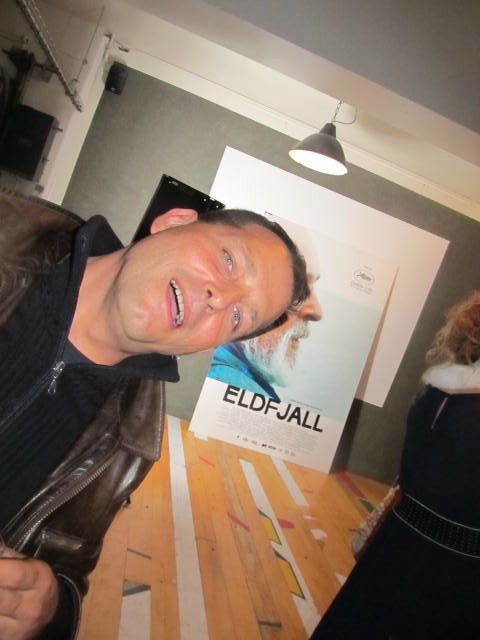
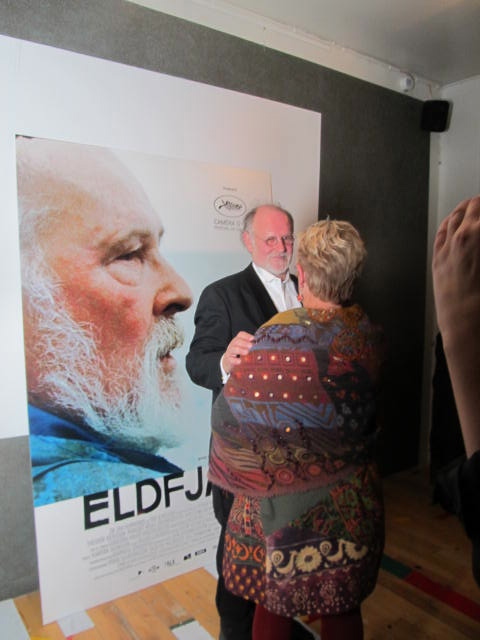
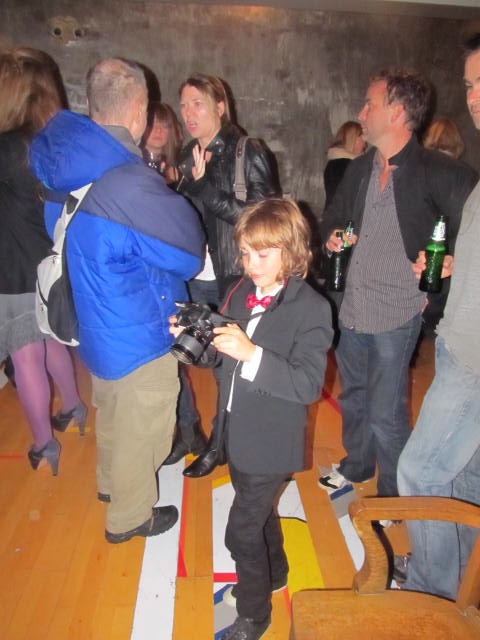
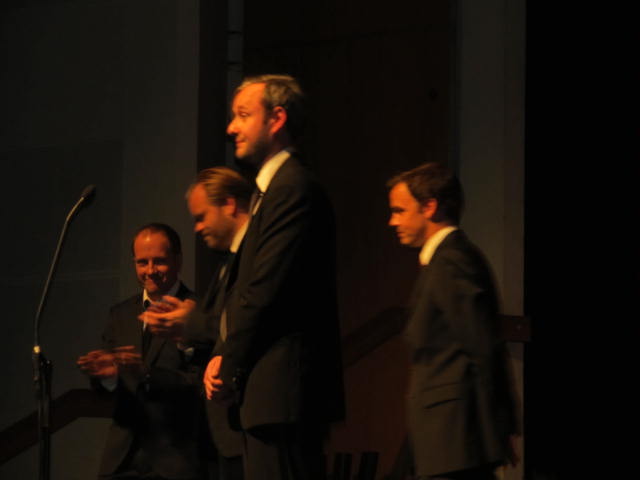
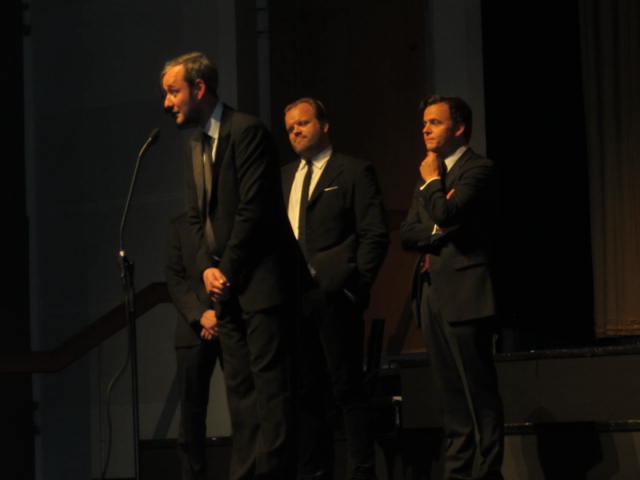
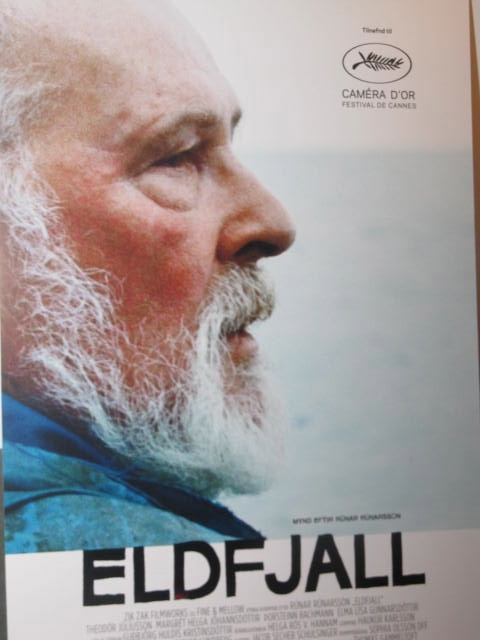
 Marinósdóttir Hrönn
Marinósdóttir Hrönn 


